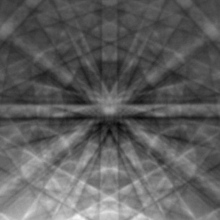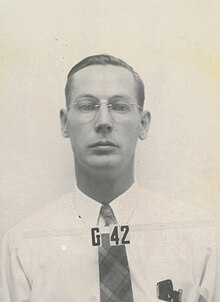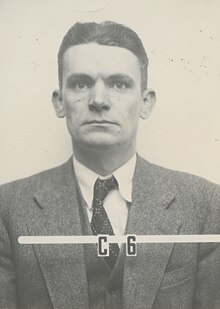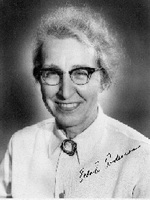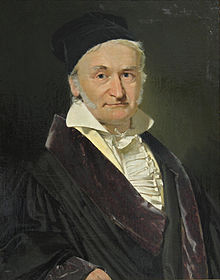Portal:Physics
The Physics Portal


Physics is the scientific study of matter, its fundamental constituents, its motion and behavior through space and time, and the related entities of energy and force. Physics is one of the most fundamental scientific disciplines. A scientist who specializes in the field of physics is called a physicist.
Physics is one of the oldest academic disciplines. Over much of the past two millennia, physics, chemistry, biology, and certain branches of mathematics were a part of natural philosophy, but during the Scientific Revolution in the 17th century, these natural sciences branched into separate research endeavors. Physics intersects with many interdisciplinary areas of research, such as biophysics and quantum chemistry, and the boundaries of physics are not rigidly defined. New ideas in physics often explain the fundamental mechanisms studied by other sciences and suggest new avenues of research in these and other academic disciplines such as mathematics and philosophy.
Advances in physics often enable new technologies. For example, advances in the understanding of electromagnetism, solid-state physics, and nuclear physics led directly to the development of technologies that have transformed modern society, such as television, computers, domestic appliances, and nuclear weapons; advances in thermodynamics led to the development of industrialization; and advances in mechanics inspired the development of calculus. (Full article...)
In theoretical physics, the anti-de Sitter/conformal field theory correspondence (frequently abbreviated as AdS/CFT) is a conjectured relationship between two kinds of physical theories. On one side are anti-de Sitter spaces (AdS) that are used in theories of quantum gravity, formulated in terms of string theory or M-theory. On the other side of the correspondence are conformal field theories (CFT) that are quantum field theories, including theories similar to the Yang–Mills theories that describe elementary particles.
The duality represents a major advance in the understanding of string theory and quantum gravity. This is because it provides a non-perturbative formulation of string theory with certain boundary conditions and because it is the most successful realization of the holographic principle, an idea in quantum gravity originally proposed by Gerard 't Hooft and promoted by Leonard Susskind. (Full article...)
Did you know -

- ...that while Albert Einstein is most famous for his Theory of Relativity, he was awarded the Nobel Prize for his explanation of the photoelectric effect?
- ...that gravitational tidal accelerations are the result of the curvature of spacetime?
- ...that the blue glow of the Cherenkov effect is due to electrons moving faster than the speed of light in water?
Selected image -

Related portals
December anniversaries
- 1610 – Galileo Galilei observes phases of Venus.
- 1900 - The peer reviewed journal "Nature" reports on Duddell's "Singing Arc" American Physical Society.
- 1942 - First self-sustained nuclear chain reaction at the University of Chicago under the supervision of Enrico Fermi. American Physical Society
- 1968 – Apollo 8 Launched
- 1995 – Hubble Deep Field images taken.
Births
- 1852 - Henri Becquerel
- 1900 - George Eugene Uhlenbeck
- 25 December, 1642 - Isaac Newton
- 5 December, 1901 - Werner Heisenberg
- 18 December, 1856 - J. J. Thomson
General images
Categories

Fundamentals: Concepts in physics | Constants | Physical quantities | Units of measure | Mass | Length | Time | Space | Energy | Matter | Force | Gravity | Electricity | Magnetism | Waves
Basic physics: Mechanics | Electromagnetism | Statistical mechanics | Thermodynamics | Quantum mechanics | Theory of relativity | Optics | Acoustics
Specific fields: Acoustics | Astrophysics | Atomic physics | Molecular physics | Optical physics | Computational physics | Condensed matter physics | Nuclear physics | Particle physics | Plasma physics
Tools: Detectors | Interferometry | Measurement | Radiometry | Spectroscopy | Transducers
Background: Physicists | History of physics | Philosophy of physics | Physics education | Physics journals | Physics organizations
Other: Physics in fiction | Physics lists | Physics software | Physics stubs
Physics topics
Classical physics traditionally includes the fields of mechanics, optics, electricity, magnetism, acoustics and thermodynamics. The term Modern physics is normally used for fields which rely heavily on quantum theory, including quantum mechanics, atomic physics, nuclear physics, particle physics and condensed matter physics. General and special relativity are usually considered to be part of modern physics as well.
More recognized content
Associated Wikimedia
The following Wikimedia Foundation sister projects provide more on this subject:
-
Commons
Free media repository -
Wikibooks
Free textbooks and manuals -
Wikidata
Free knowledge base -
Wikinews
Free-content news -
Wikiquote
Collection of quotations -
Wikisource
Free-content library -
Wikiversity
Free learning tools -
Wikivoyage
Free travel guide -
Wiktionary
Dictionary and thesaurus



